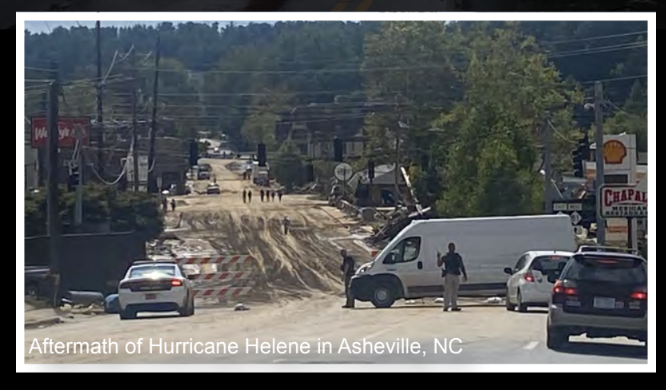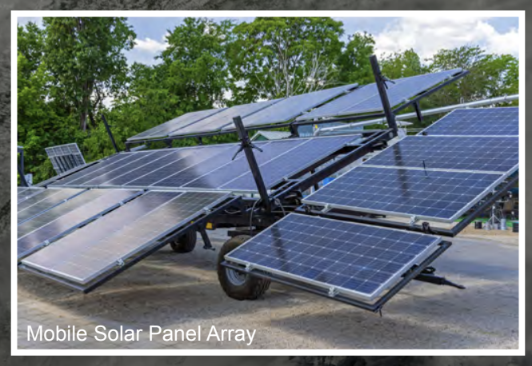After the Storm, a Smarter Grid Should Follow
When Hurricane Helene swept through western North
Carolina, it left more than just fallen trees and flooded roads. It left
families in the dark—without power, without refrigeration for
medication, without a way to charge a phone or run essential
equipment. Days passed before help could reach some of the
mountain communities hardest hit.

But during this hardship, a quiet revolution happened. Volunteers
arrived with mobile solar trailers—compact, quiet units that
powered medical equipment, phone chargers, and refrigerated
insulin when traditional generators failed or ran out of fuel. This
wasn’t an experiment. This was a testament to how proven,
market-ready tools meet critical needs.
North Carolina still operates under a monopoly utility
framework—one where Duke Energy controls most of the
generation and delivery of electricity. While the utility has a role to
play, it shouldn’t be the only one allowed to play. We need more
competition, more flexibility, and a regulatory structure that
welcomes 21st-century solutions.
Solar isn’t just about resilience—it’s about economic
opportunity. Letting businesses, farmers, and local governments
invest in on-site generation is critical for reliability, our
pocketbooks, and when our lives are on the line. The more
options we have, the more cost-effective and stable our energy can be.

This deployment of solar technology showcases just how
effective solar and battery systems are. They aren’t just
“alternatives”—they’re assets. Especially in a crisis like Hurricane
Helene, we need an energy system that’s as resilient as the
communities it serves. But the most innovative technologies can’t
be deployed under North Carolina’s current utility model. That’s
not a technology problem. It’s a market problem.
That’s why North Carolina needs a Market Reform Study—a
clear-eyed look at how to modernize our grid, attract private
investment, and reward performance over monopoly protection.
Other states are already moving in this direction. It’s time we
catch up—not with mandates, but with a smarter market that
serves the public and empowers private solutions.
When the next storm hits, let’s ensure the lights stay on—not
just with prayers, but with a grid built to withstand whatever
comes next.
